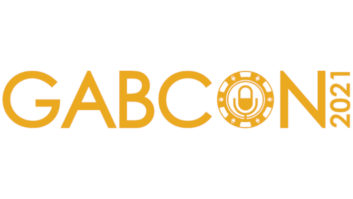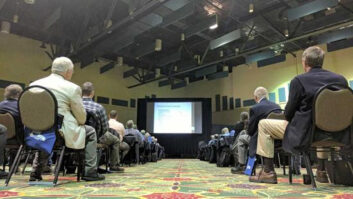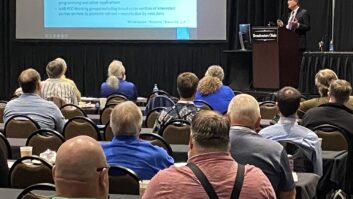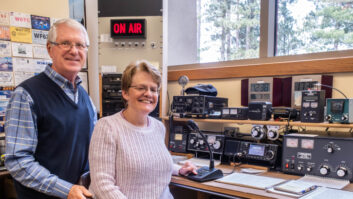
David Honig has long been invested in the radio industry. Back in 1979, Honig served as a U.S. Delegate to the World Administrative Radio Conference in Geneva, where he helped write the International Telecommunication Union’s rules governing AM radio. In the years since then, he has chaired working groups on radio and satellite broadcasting, served on FCC advisory boards on diversity in communications, and taught communications policy and civil rights litigation at several major U.S. universities.
Honig cofounded the nonprofit Minority Media and Telecommunications Council (MMTC — now called Multicultural Media, Telecom and Internet Council) in 1986 to promote and preserve equal opportunity and civil rights in the mass media, telecommunications, and broadband industries.
Radio World spoke with Honig about the future of the radio industry, and what he sees are the biggest priorities for 2018. The following is a minimally edited version of that conversation.
Radio World: What is your job title?
David Honig: President emeritus and senior advisor, Multicultural Media, Telecom and Internet Council.
RW: What do you see as the most pressing challenges facing broadcasters in 2018?
Honig: Keeping the FCC focused on lifting longstanding barriers to success that disproportionately harm minority broadcasters. There’s so much, such as:
● Rural radio policy
● Restrictions on Class A FM power levels that the C4 proposal could help cure
● Fixing tepid EEO enforcement
● Opening up opportunities for minority procurement
● Shutting down pirates that mostly exploit minority communities and prey on minority broadcasters
● Avoiding structural ownership “relaxation” that would put minority broadcasters farther and farther behind in their ability to raise capital and compete in the marketplace.
RW: The current FCC has made it clear that one of its priorities was to clear way what it says is unnecessary regulatory underbrush. What is your assessment of the changes that Chairman Ajit Pai and the FCC have made so far in terms of its regulatory policy?
Honig: Getting rid of the Main Studio Rule was huge and a big plus. We fought that awful rule for 10 years.
Our economist found that minorities had to build a lot more main studios than non-minorities, because discrimination resulted in minorities getting into the business a lot later than others, so they wound up having to serve large cities with several suburban stations, each of which had to have its own “main studio.” We called this a “tax on Blackness” and the FCC agreed. Best thing Chairman Pai did in his first year.
RW: The MMTC has been adamant in voicing its support for several issues, such as elimination of the main studio rule. What benefit do you expect to see for minority broadcasters now the rule has been eliminated?
Honig: Two things. First, they won’t have to pay for “featherbedding” anymore. That impacts their bottom line and thus their access to capital. Second, it will place their multiple suburban operations on more of an equal footing with the multiple-station downtown operations of their competitors.
There’s still inequality in coverage — the FCC needs to repeal the Rural Radio Policy to fix that — but at least there won’t be a built-in inequality on the operating expense side — an inequality that did nothing but carry over, into the present time, the impact of past segregation.
RW: What additional steps do you think the FCC needs to take when it comes to multilingual EAS alerts? What should the commission’s other priorities be when it comes to emergency alerting?
Honig: The FCC took 11 years to decide not to ensure that Spanish-speaking Americans would receive life-saving information in the immediate wake of a hurricane. That was not the FCC’s best day. I’m sorry, but there’s no nice way to say how cruel, how immoral that was. History will not judge the FCC well when it comes to multilingual emergency broadcasting. We’re in court now, so I’ll wait until the case is over to say what I really think.
RW: What other key issues should the commission should be addressing?
Honig: It’s time for the FCC to be pro-active about diversity. I like the chairman’s idea of issuing a ruling a month on a big deregulatory issue that benefits everybody. We haven’t hesitated to send him candidates for rules that have gotten in the way of equal opportunity. There are plenty of them.












